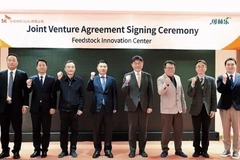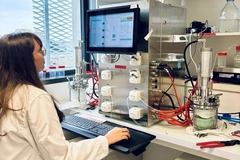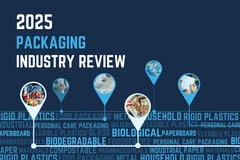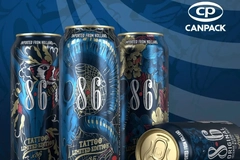Plastic Energy generates oil from plastic waste at Dutch recycling plant

Plastic Energy has produced the first batch of pyrolysis oil, Tacoil, at its joint venture facility with Sabic in Geleen, the Netherlands. It serves as a replacement for conventional naphtha in existing petrochemical plants, enabling the manufacture of products, including food-contact packaging and medical-grade plastics.
Tacoil is made from hard-to-recycle post-consumer plastic waste that would otherwise end up in landfills or be incinerated. The company says this first batch marks a key milestone on the road to full commercial operations.
Ian Temperton, CEO at Plastic Energy, says: “Producing our first Tacoil at Sabic Plastic Energy Advanced Recycling (SPEAR) is a major step forward for the plastic recycling industry. It underscores the capabilities of Plastic Energy’s technology, the robustness of our process, and the dedication of our excellent team.”
“Recycling plastic waste into new plastics is critical to building a circular economy — and that’s exactly what this plant delivers. It boosts recycling rates, helps reduce CO2 emissions by diverting used plastic from incineration, and shows what’s possible when innovation meets scale.”
Meeting regulatory goals with tech
The polymers created at the site will add commercial volumes of circular polymers, which have been used by global brand owners in packaging and consumer goods since 2019. Plastic Energy’s patented TAC process breaks down mixed plastic wastes by heating them in an oxygen-free environment. The facility expects to recycle 20,000 metric tons of waste plastic annually under full operation.
Plastic Energy’s plants in Spain have also adopted the technology designed to plug directly into the existing plastics value chain.
The third-party chemical recycling technology is integrated into an existing petrochemical facility. The SPEAR facility aims to become the first of its kind and is expected to support the EU’s Packaging and Packaging Waste Regulation goal of making all packaging fully recyclable by 2030.
The project is being executed with a Top Sector Energy Subsidy from the Ministry of Economic Affairs in the Netherlands.














